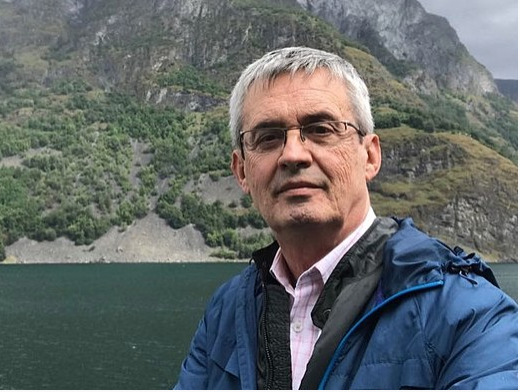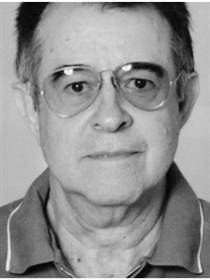


Books in series

Crônicas 1
1977

Crônicas 4
1981

Para Gostar de Ler - Volume 6 - Poesias
1980

Contos Brasileiros 2
1984

Histórias de Detetive
1992

PARA GOSTAR DE LER VOL.14 - O NARIZ
1995

A Cadeira do Dentista
1994

Cenas Brasileiras
1995

Um País Chamado Infância
1989
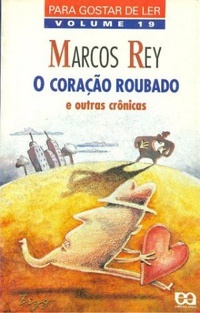
O coração roubado e outras crônicas
1900

O Golpe do Aniversariante
1996

Gol de Padre
2003
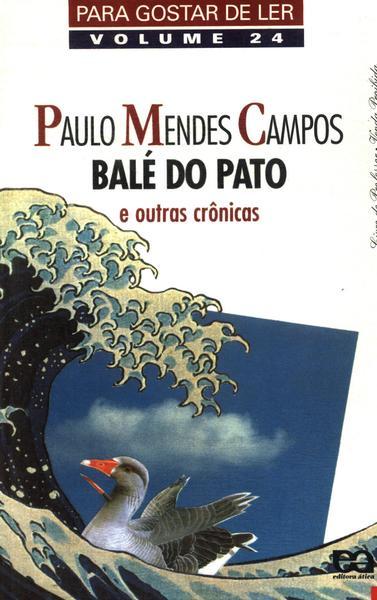
Balé do Pato e Outras Crônicas
1997
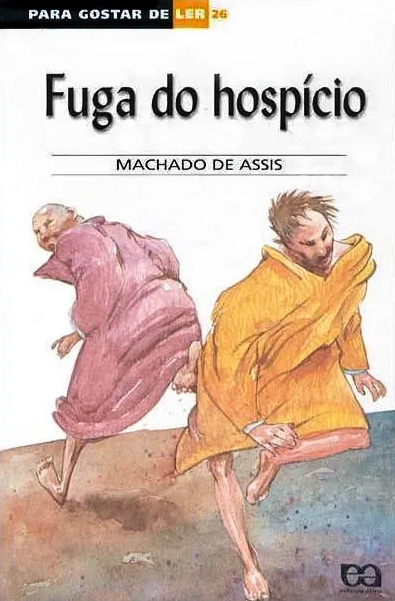
Fuga do Hospício
1998

Histórias Sobre Ética
2000
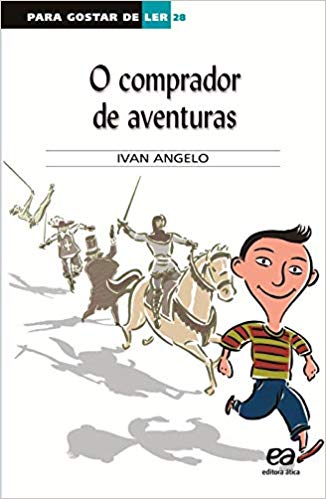
O comprador de aventuras
2019

O Menino e o Arco-íris e Outras Crônicas
2001
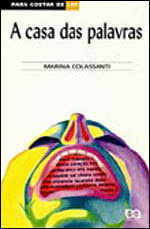
A Casa das Palavras e outras crônicas
2008

Calcinhas Secretas
2003
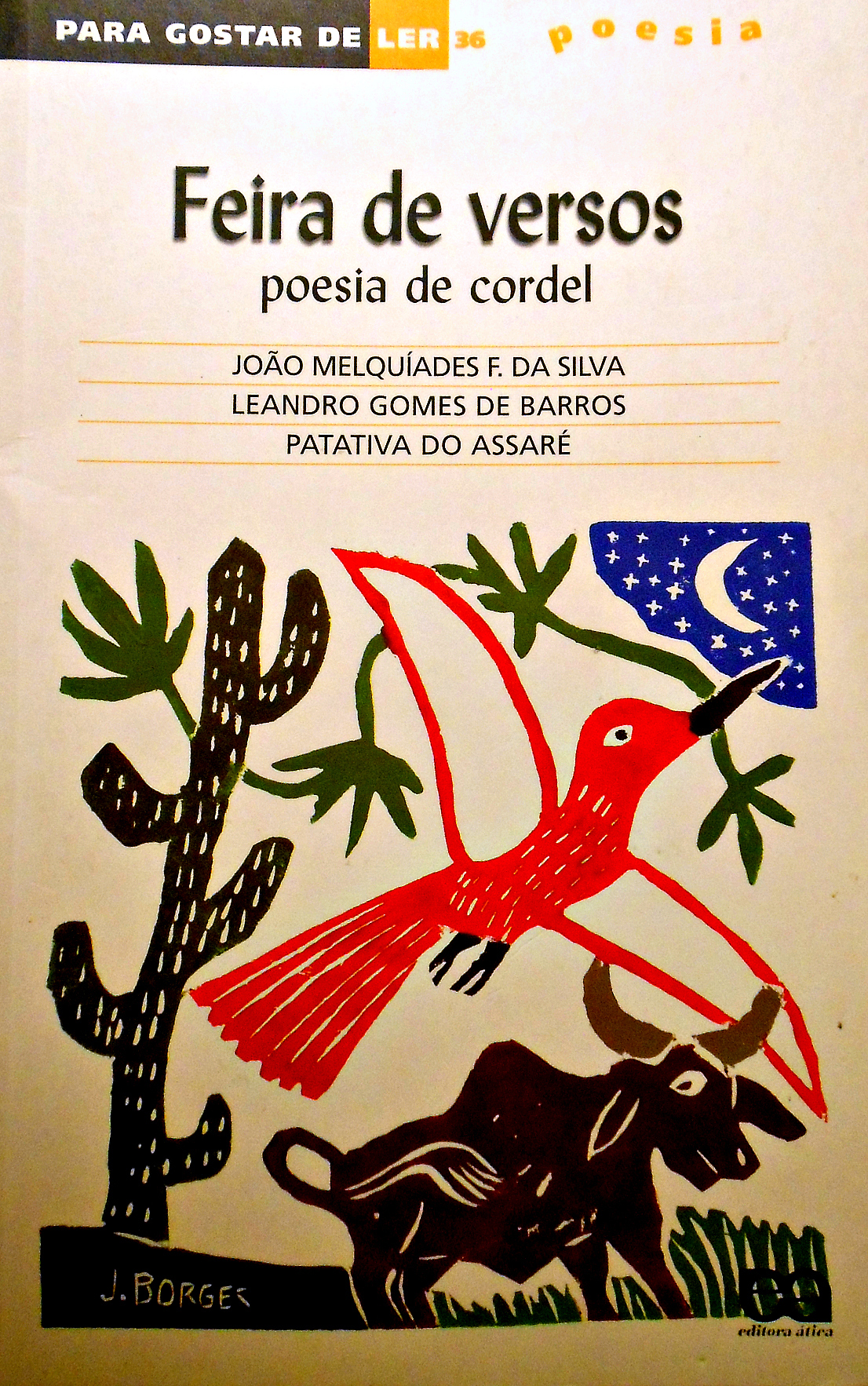
Feira de Versos
2008

Já Não Somos Mais Crianças
2002

Histórias de Ficção Científica
2006

Poesia Marginal
2006
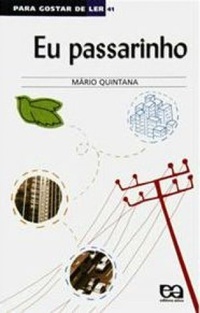
Eu passarinho
poesia
2006
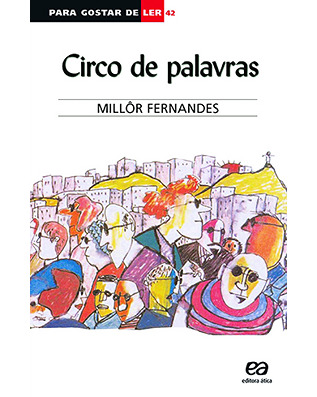
Circo de palavras
2015

Contos Africanos dos Paises de Lingua Portuguesa
2007
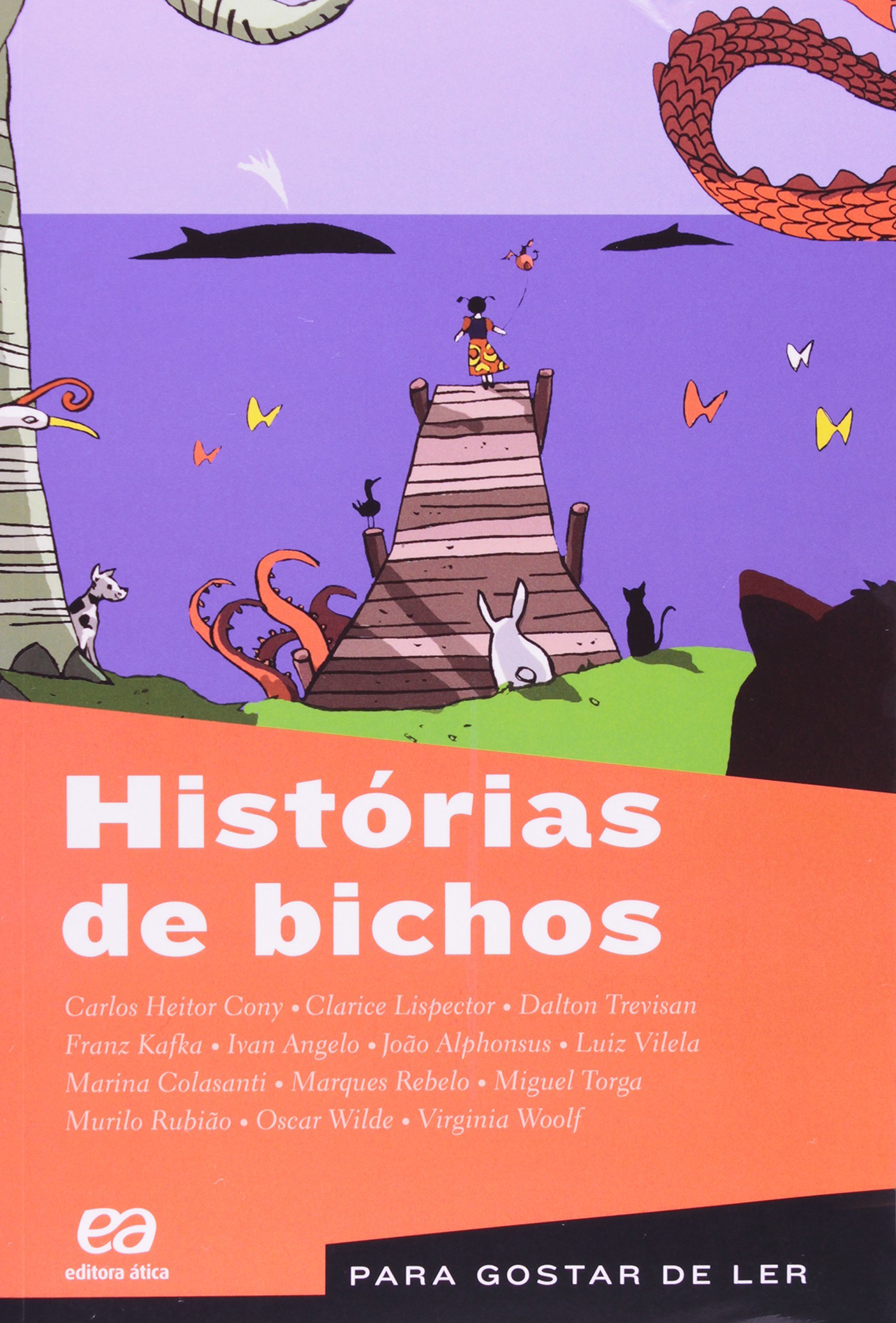
Histórias de bichos
2011

Poesia Faz Pensar
2011
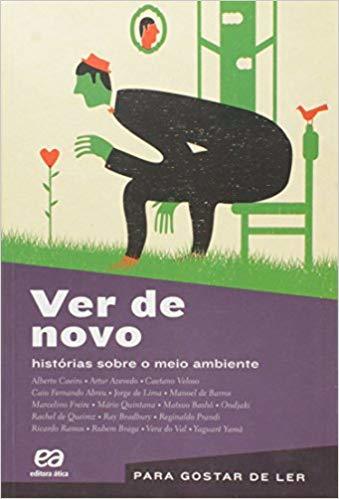
Ver de novo
histórias sobre o meio ambiente
2013
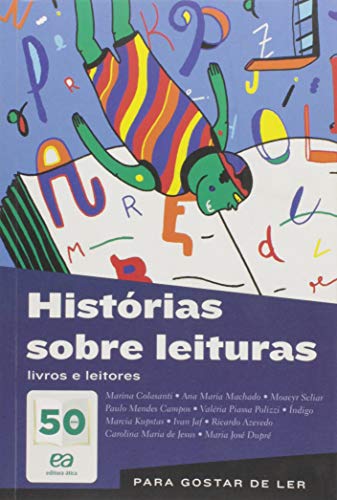
Historias Sobre Leituras
Livros e Leitores - Colecao Para Gostar de Ler
2015
Authors

Sir Arthur Charles Clarke was one of the most important and influential figures in 20th century science fiction. He spent the first half of his life in England, where he served in World War Two as a radar operator, before emigrating to Ceylon in 1956. He is best known for the novel and movie 2001: A Space Odyssey, which he co-created with the assistance of Stanley Kubrick. Clarke was a graduate of King's College, London where he obtained First Class Honours in Physics and Mathematics. He is past Chairman of the British Interplanetary Society, a member of the Academy of Astronautics, the Royal Astronomical Society, and many other scientific organizations. Author of over fifty books, his numerous awards include the 1961 Kalinga Prize, the AAAS-Westinghouse science writing prize, the Bradford Washburn Award, and the John W. Campbell Award for his novel Rendezvous With Rama. Clarke also won the Nebula Award of the Science Fiction Writers of America in 1972, 1974 and 1979, the Hugo Award of the World Science Fiction Convention in 1974 and 1980, and in 1986 became Grand Master of the Science Fiction Writers of America. He was awarded the CBE in 1989.
Artur Nabantino Gonçalves de Azevedo (São Luís, 7 de julho de 1855 — Rio de Janeiro, 22 de outubro de 1908), também conhecido como Arthur Azevedo, foi um escritor, dramaturgo, poeta, contista, prosador, comediógrafo, crítico, cronista e jornalista brasileiro. Ao lado de seu irmão, o escritor Aluísio Azevedo, foi um dos fundadores da Academia Brasileira de Letras. Tendo escrito milhares de artigos sobre eventos artísticos e encenado mais de cem peças no Brasil e em Portugal, Azevedo foi um dos maiores defensores da criação do Teatro Municipal do Rio de Janeiro, cuja inauguração ocorreu meses depois de sua morte. Suas peças mais conhecidas são A joia, A Capital Federal, A almanjarra, O Mambembe, entre outras. Três teatros no Brasil foram batizados com o seu nome: o Teatro Arthur Azevedo de São Luís, Maranhão, sua cidade natal, o Teatro Arthur Azevedo da cidade de São Paulo, e o Teatro Arthur Azevedo da cidade de Rio de Janeiro.

Miguel de Unamuno y Jugo was born in the medieval centre of Bilbao, Basque Country, the son of Félix de Unamuno and Salomé Jugo. As a young man, he was interested in the Basque language, and competed for a teaching position in the Instituto de Bilbao, against Sabino Arana. The contest was finally won by the Basque scholar Resurrección María de Azcue. Unamuno worked in all major genres: the essay, the novel, poetry and theatre, and, as a modernist, contributed greatly to dissolving the boundaries between genres. There is some debate as to whether Unamuno was in fact a member of the Generation of '98 (an ex post facto literary group of Spanish intellectuals and philosophers that was the creation of José Martínez Ruiz—a group that includes Antonio Machado, Azorín, Pío Baroja, Ramón del Valle-Inclán, Ramiro de Maeztu and Ángel Ganivet, among others). In addition to his writing, Unamuno played an important role in the intellectual life of Spain. He served as rector of the University of Salamanca for two periods: from 1900 to 1924 and 1930 to 1936, during a time of great social and political upheaval. Unamuno was removed from his post by the government in 1924, to the protest of other Spanish intellectuals. He lived in exile until 1930, first banned to Fuerteventura (Canary Islands), from where he escaped to France. Unamuno returned after the fall of General Primo de Rivera's dictatorship and took up his rectorship again. It is said in Salamanca that the day he returned to the University, Unamuno began his lecture by saying "As we were saying yesterday, ...", as Fray Luis de León had done in the same place four centuries before, as though he had not been absent at all. After the fall of Rivera's dictatorship, Spain embarked on its second Republic, a short-lived attempt by the people of Spain to take democratic control of their own country. He was a candidate for the small intellectual party Al Servicio de la República. The burgeoning Republic was eventually squashed when a military coup headed by General Francisco Franco caused the outbreak of the Spanish Civil War. Having begun his literary career as an internationalist, Unamuno gradually became a convinced Spanish nationalist, feeling that Spain's essential qualities would be destroyed if influenced too much by outside forces. Thus for a brief period he actually welcomed Franco's revolt as necessary to rescue Spain from radical influence. However, the harsh tactics employed by the Francoists in the struggle against their republican opponents caused him to oppose both the Republic and Franco. As a result of his opposition to Franco, Unamuno was effectively removed for a second time from his University post. Also, in 1936 Unamuno had a brief public quarrel with the Nationalist general Millán Astray at the University in which he denounced both Astray and elements of the Francoist movement. He called the battle cry of the rightist Falange movement—"Long live death!"—repellent and suggested Astray wanted to see Spain crippled. One historian notes that his address was a "remarkable act of moral courage" and that he risked being lynched on the spot. Shortly afterwards, he was placed under house arrest, where he remained, broken-hearted, until his death ten weeks later.[1]

Jean de La Fontaine was the most famous French fabulist and one of the most widely read French poets of the 17th century. According to Flaubert, he was the only French poet to understand and master the texture of the French language before Hugo. A set of postage stamps celebrating La Fontaine and the Fables was issued by France in 1995. A film of his life was released in France in April 2007 (Jean de La Fontaine - le défi starring Laurent Deutsch).

Complete works (1880) : https://archive.org/details/oeuvresco... In 1694, Age of Enlightenment leader Francois-Marie Arouet, known as Voltaire, was born in Paris. Jesuit-educated, he began writing clever verses by the age of 12. He launched a lifelong, successful playwriting career in 1718, interrupted by imprisonment in the Bastille. Upon a second imprisonment, in which Francois adopted the pen name Voltaire, he was released after agreeing to move to London. There he wrote Lettres philosophiques (1733), which galvanized French reform. The book also satirized the religious teachings of Rene Descartes and Blaise Pascal, including Pascal's famed "wager" on God. Voltaire wrote: "The interest I have in believing a thing is not a proof of the existence of that thing." Voltaire's French publisher was sent to the Bastille and Voltaire had to escape from Paris again, as judges sentenced the book to be "torn and burned in the Palace." Voltaire spent a calm 16 years with his deistic mistress, Madame du Chatelet, in Lorraine. He met the 27 year old married mother when he was 39. In his memoirs, he wrote: "I found, in 1733, a young woman who thought as I did, and decided to spend several years in the country, cultivating her mind." He dedicated Traite de metaphysique to her. In it the Deist candidly rejected immortality and questioned belief in God. It was not published until the 1780s. Voltaire continued writing amusing but meaty philosophical plays and histories. After the earthquake that leveled Lisbon in 1755, in which 15,000 people perished and another 15,000 were wounded, Voltaire wrote Poème sur le désastre de Lisbonne (Poem on the Lisbon Disaster): "But how conceive a God supremely good/ Who heaps his favours on the sons he loves,/ Yet scatters evil with as large a hand?" Voltaire purchased a chateau in Geneva, where, among other works, he wrote Candide (1759). To avoid Calvinist persecution, Voltaire moved across the border to Ferney, where the wealthy writer lived for 18 years until his death. Voltaire began to openly challenge Christianity, calling it "the infamous thing." He wrote Frederick the Great: "Christianity is the most ridiculous, the most absurd, and bloody religion that has ever infected the world." Voltaire ended every letter to friends with "Ecrasez l'infame" (crush the infamy—the Christian religion). His pamphlet, The Sermon on the Fifty (1762) went after transubstantiation, miracles, biblical contradictions, the Jewish religion, and the Christian God. Voltaire wrote that a true god "surely cannot have been born of a girl, nor died on the gibbet, nor be eaten in a piece of dough," or inspired "books, filled with contradictions, madness, and horror." He also published excerpts of Testament of the Abbe Meslier, by an atheist priest, in Holland, which advanced the Enlightenment. Voltaire's Philosophical Dictionary was published in 1764 without his name. Although the first edition immediately sold out, Geneva officials, followed by Dutch and Parisian, had the books burned. It was published in 1769 as two large volumes. Voltaire campaigned fiercely against civil atrocities in the name of religion, writing pamphlets and commentaries about the barbaric execution of a Huguenot trader, who was first broken at the wheel, then burned at the stake, in 1762. Voltaire's campaign for justice and restitution ended with a posthumous retrial in 1765, during which 40 Parisian judges declared the defendant innocent. Voltaire urgently tried to save the life of Chevalier de la Barre, a 19 year old sentenced to death for blasphemy for failing to remove his hat during a religious procession. In 1766, Chevalier was beheaded after being tortured, then his body was burned, along with a copy of Voltaire's Philosophical Dictionary. Voltaire's statue at the Pantheon was melted down during Nazi occupation. D. 1778. Voltaire (1694-1778), pseudónimo de François-

Joaquim Maria Machado de Assis, often known as Machado de Assis, Machado, or Bruxo do Cosme Velho, (June 21, 1839, Rio de Janeiro—September 29, 1908, Rio de Janeiro) was a Brazilian novelist, poet, playwright and short story writer. He is widely regarded as the most important writer of Brazilian literature. However, he did not gain widespread popularity outside Brazil in his own lifetime. Machado's works had a great influence on Brazilian literary schools of the late 19th century and 20th century. José Saramago, Carlos Fuentes, Susan Sontag and Harold Bloom are among his admirers and Bloom calls him "the supreme black literary artist to date."

Moacyr Jaime Scliar (born March 23, 1937) is a Brazilian writer and physician. Scliar is best known outside Brazil for his 1981 novel Max and the Cats (Max e os Felinos), the story of a young man who flees Berlin after he comes to the attention of the Nazis for having had an affair with a married woman. Making his way to Brazil, his ship sinks, and he finds himself alone in a dinghy with a jaguar who had been travelling in the hold.[1] The story of the jaguar and the boy was picked up by Yann Martel for his own book Life of Pi, winner of the 2002 Man Booker Prize, in which Pi is trapped in a lifeboat with a tiger



Chacal (pseudônimo de Ricardo de Carvalho Duarte) é poeta e letrista brasileiro. LIVROS PUBLICADOS: 1971 (RJ) – Muito Prazer, Ricardo (Ed. do Autor); 1972 (RJ) – Preço da Passagem ( Ed. do Autor); 1975 (RJ) – América ( Ed. do Autor); 1977 (RJ) – Quampérius (Nuvem Cigana); 1979 (RJ) – Olhos Vermelhos (Ed. do Autor); 1979 (RJ) – Nariz Aniz (Ed. do Autor); 1979 (RJ) – Boca Roxa (Ed. do Autor); 1982 (RJ) – Tontas Coisas (Ed. Taurus); 1983 (SP) – Drops de Abril (Ed. Brasiliense); 1986 (SP) – Comício de Tudo (Ed. Brasiliense); 1994 (RJ) – Letra Elétrika (Ed. Diadorim); 1998 (RJ) – Posto Nove (Ed. Dumará/ Rioarte); 2002 (RJ) – A Vida é curta pra ser pequena (Ed.Frente); 2007 (SP) – Belvedere (Cosacnaify e 7 Letras)

I was born in Alegrete, on the 30th of July 1906. I believe that was the first thing that happened to me. And now they have asked me to speak of myself. Well! I always thought that every confession that wasn’t altered by art is indecent. My life is in my poems, my poems are myself, never have I written a comma that wasn’t a confession. Ah! but what they want are details, rawness, gossip...Here we go! I am 78 years old, but without age. Of ages, there are only two: either you are alive or dead. In the latter case, it is too old, because what was promised to us was eternity. I was born in the rigor of the winter, temperature: 1 degree °C; and still I was premature, which would leave me kind of complexed because I used to think I wasn’t ready. One day I discovered that someone as complete as Winston Churchill was born premature - the same thing happened to Sir Issac Newton! Excusez du peu... I prefer to cite the opinion of others about me. They say I am modest. On the contrary, I am so proud that I think I never reached the height of my writing. Because poetry is insatisfaction, an affliction of self-elevation. A satisfied poet doesn’t satisfy. They say I am timid. Nothing of the sort! I am very quiet, introspective. I don’t know why they subject the introverts to treatment. Only for not being as annoying at the rest? It is exactly for detesting annoyingness, the lengthiness, that I love synthesis. Another element of poetry is the search for the form (not of the form), the dosage of words. Perhaps what contributes to my safety is the fact that I have been a practitioner of pharmacy for five years. Note that the same happened with Carlos Drummond de Andrade, Alberto de Oliveira, Erico Verissimo - they well know (or knew) what a loving fight with words means.
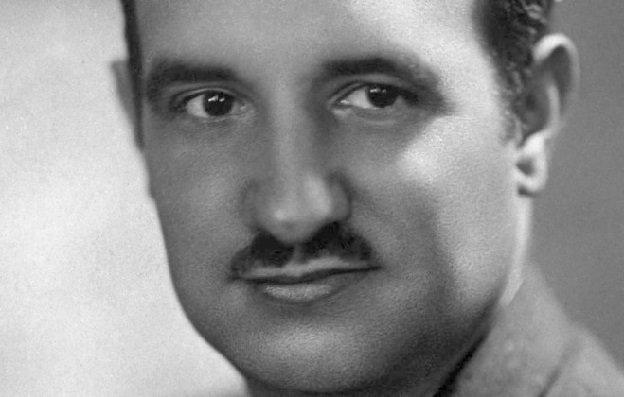
João Alphonsus de Guimaraens (Conceição do Mato Dentro, 6 de abril de 1901 — Belo Horizonte, 24 de maio de 1944) foi um advogado, jornalista, contista e poeta modernista brasileiro. Era o terceiro filho do grande poeta simbolista Alphonsus de Guimaraens.[1][2] Foi um dos nomes importantes do Modernismo e contemporâneo de Carlos Drummond de Andrade, Emílio Moura, Pedro Nava e outros que foram seus amigos no Diário de Minas. Iniciou seus estudos em Mariana e, aos 17 anos, se mudou para Belo Horizonte, onde se finalizou a graduação em Direito. Foi Promotor de Justiça e Procurador-Geral do Estado. Publicou seus primeiros poemas na revista Fon-Fon, em 1918. Em 1925, fundou a revista Verde em parceria com Antônio Mendes e outros companheiros. Influenciado pelo simbolismo, inicialmente escrevia somente poemas. Em contato com o modernismo, passou a escrever romances e contos, incorporando a fala coloquial e neologismos. Recebeu o prêmio Machado de Assis com o romance Totônio Pacheco, em 1934; o Prêmio da Academia Brasileira de Letras pelo romance Rola-Moça (1938); e quando publicou o romance Pesca da Baleia tornou-se membro da Academia. João Alphonsus, na expressão do poeta e amigo Drummond, criou "uma literatura humana, terrivelmente humana, miudamente, dolorosamente humana". Foi um dos maiores nomes da nossa literatura. João Alphonsus faleceu no Rio de Janeiro em 24 de maio de 1944, deixando sua esposa Esmeralda Vianna de Guimaraens e 03 filhos: João Alphonsus de Guimaraens Filho, Liliana Baeta Viana de Guimaraens e Fernão Baeta Vianna de Guimaraens.

Millôr Fernandes is a Brazilian cartoonist, humorist and playwright. Started his journalistic career already in 1938, publishing in several Brazilian magazines. In 1956, Millôr shared with Saul Steinberg the first prize at the Buenos Aires International Caricature Exhibition, and in 1957 he had a one-man exhibition in Rio de Janeiro's Museum of Modern Art. Together with Jaguar, Ziraldo and others, he founded in 1969 the groundbreaking satirical newspaper O Pasquim. Millôr has written a number of successful plays, and has also translated classics such as Shakespeare.

Prague-born writer Franz Kafka wrote in German, and his stories, such as " The Metamorphosis " (1916), and posthumously published novels, including The Trial (1925), concern troubled individuals in a nightmarishly impersonal world. Jewish middle-class family of this major fiction writer of the 20th century spoke German. People consider his unique body of much incomplete writing, mainly published posthumously, among the most influential in European literature. His stories include "The Metamorphosis" (1912) and " In the Penal Colony " (1914), whereas his posthumous novels include The Trial (1925), The Castle (1926) and Amerika (1927). Despite first language, Kafka also spoke fluent Czech. Later, Kafka acquired some knowledge of the French language and culture from Flaubert, one of his favorite authors. Kafka first studied chemistry at the Charles-Ferdinand University of Prague but after two weeks switched to law. This study offered a range of career possibilities, which pleased his father, and required a longer course of study that gave Kafka time to take classes in German studies and art history. At the university, he joined a student club, named Lese- und Redehalle der Deutschen Studenten, which organized literary events, readings, and other activities. In the end of his first year of studies, he met Max Brod, a close friend of his throughout his life, together with the journalist Felix Weltsch, who also studied law. Kafka obtained the degree of doctor of law on 18 June 1906 and performed an obligatory year of unpaid service as law clerk for the civil and criminal courts. Writing of Kafka attracted little attention before his death. During his lifetime, he published only a few short stories and never finished any of his novels except the very short "The Metamorphosis." Kafka wrote to Max Brod, his friend and literary executor: "Dearest Max, my last request: Everything I leave behind me ... in the way of diaries, manuscripts, letters (my own and others'), sketches, and so on, [is] to be burned unread." Brod told Kafka that he intended not to honor these wishes, but Kafka, so knowing, nevertheless consequently gave these directions specifically to Brod, who, so reasoning, overrode these wishes. Brod in fact oversaw the publication of most of work of Kafka in his possession; these works quickly began to attract attention and high critical regard. Max Brod encountered significant difficulty in compiling notebooks of Kafka into any chronological order as Kafka started writing in the middle of notebooks, from the last towards the first, et cetera. Kafka wrote all his published works in German except several letters in Czech to Milena Jesenská.

Caetano Emanuel Vianna Telles Velloso (born August 7, 1942), better known as Caetano Veloso, is a composer, singer, guitarist, writer, and political activist. He has been called "one of the greatest songwriters of the century" and is sometimes considered to be the Bob Dylan of Brazil. Veloso is most known for his participation in the Brazilian musical movement Tropicalismo which encompassed theatre, poetry and music in the 1960s, at the beginning of the Brazilian military dictatorship. Veloso was born in Bahia, a state in the northeastern area of Brazil, but moved to Rio de Janeiro as a college student in the mid-1960s. Soon after the move, Veloso won a music contest and was signed to his first label. He became one of the founders of Tropicalismo with a group of several other musicians and artists—including his sister Maria Bethânia—in the same period. However the Brazilian government at the time viewed Veloso's music and political action as threatening, and he was arrested, along with fellow musician Gilberto Gil, in 1969. The two eventually were exiled from Brazil, and went to London, where they lived for two years. After he moved back to his home country, in 1972, Veloso once again began recording and performing, becoming popular outside of Brazil in the 1980s and 1990s. He has so far won five Latin Grammy Awards. He recorded his first all-English album, A Foreign Sound in 2004. The album contains many American standards. From Wikipedia


Richard Horatio Edgar Wallace (1875-1932) was a prolific British crime writer, journalist and playwright, who wrote 175 novels, 24 plays, and countless articles in newspapers and journals. Over 160 films have been made of his novels, more than any other author. In the 1920s, one of Wallace's publishers claimed that a quarter of all books read in England were written by him. He is most famous today as the co-creator of "King Kong", writing the early screenplay and story for the movie, as well as a short story "King Kong" (1933) credited to him and Draycott Dell. He was known for the J. G. Reeder detective stories, The Four Just Men, the Ringer, and for creating the Green Archer character during his lifetime.

Librarian Note: There is more than one author by this name in the Goodreads database. Samuel Langhorne Clemens, better known by his pen name Mark Twain, was an American author and humorist. He is noted for his novels Adventures of Huckleberry Finn (1885), called "the Great American Novel", and The Adventures of Tom Sawyer (1876). Twain grew up in Hannibal, Missouri, which would later provide the setting for Huckleberry Finn and Tom Sawyer. He apprenticed with a printer. He also worked as a typesetter and contributed articles to his older brother Orion's newspaper. After toiling as a printer in various cities, he became a master riverboat pilot on the Mississippi River, before heading west to join Orion. He was a failure at gold mining, so he next turned to journalism. While a reporter, he wrote a humorous story, "The Celebrated Jumping Frog of Calaveras County," which proved to be very popular and brought him nationwide attention. His travelogues were also well-received. Twain had found his calling. He achieved great success as a writer and public speaker. His wit and satire earned praise from critics and peers, and he was a friend to presidents, artists, industrialists, and European royalty. However, he lacked financial acumen. Though he made a great deal of money from his writings and lectures, he squandered it on various ventures, in particular the Paige Compositor, and was forced to declare bankruptcy. With the help of Henry Huttleston Rogers, however, he eventually overcame his financial troubles. Twain worked hard to ensure that all of his creditors were paid in full, even though his bankruptcy had relieved him of the legal responsibility. Born during a visit by Halley's Comet, he died on its return. He was lauded as the "greatest American humorist of his age", and William Faulkner called Twain "the father of American literature". Excerpted from Wikipedia. AKA: Μαρκ Τουαίν (Greek)

Kathleen Mansfield Murry (née Beauchamp) was a prominent New Zealand modernist writer of short fiction who wrote under the pen name of Katherine Mansfield. Katherine Mansfield is widely considered one of the best short story writers of her period. A number of her works, including "Miss Brill", "Prelude", "The Garden Party", "The Doll's House", and later works such as "The Fly", are frequently collected in short story anthologies. Mansfield also proved ahead of her time in her adoration of Russian playwright and short story writer Anton Chekhov, and incorporated some of his themes and techniques into her writing. Katherine Mansfield was part of a "new dawn" in English literature with T.S. Eliot, James Joyce and Virginia Woolf. She was associated with the brilliant group of writers who made the London of the period the centre of the literary world. Nevertheless, Mansfield was a New Zealand writer - she could not have written as she did had she not gone to live in England and France, but she could not have done her best work if she had not had firm roots in her native land. She used her memories in her writing from the beginning, people, the places, even the colloquial speech of the country form the fabric of much of her best work. Mansfield's stories were the first of significance in English to be written without a conventional plot. Supplanting the strictly structured plots of her predecessors in the genre (Edgar Allan Poe, Rudyard Kipling, H. G. Wells), Mansfield concentrated on one moment, a crisis or a turning point, rather than on a sequence of events. The plot is secondary to mood and characters. The stories are innovative in many other ways. They feature simple things - a doll's house or a charwoman. Her imagery, frequently from nature, flowers, wind and colours, set the scene with which readers can identify easily. Themes too are universal: human isolation, the questioning of traditional roles of men and women in society, the conflict between love and disillusionment, idealism and reality, beauty and ugliness, joy and suffering, and the inevitability of these paradoxes. Oblique narration (influenced by Chekhov but certainly developed by Mansfield) includes the use of symbolism - the doll's house lamp, the fly, the pear tree - hinting at the hidden layers of meaning. Suggestion and implication replace direct detail.

Cacaso (Antônio Carlos De Brito) foi um professor universitário, letrista e poeta brasileiro. Depois de viver no interior de São Paulo, mudou-se aos onze anos para o Rio de Janeiro, onde estudou Filosofia e, nas décadas de 1960 e 1970, lecionou Teoria da Literatura e Literatura Brasileira na PUC-RJ. Foi colaborador regular de revistas e jornais, como Opinião e Movimento, tendo, entre outros assuntos, defendido e teorizado acerca do cenário poético de seus contemporâneos, a geração mimeógrafo, criadores da dita poesia marginal, que ganhou publicidade com a antologia 26 poetas hoje, organizada por Heloísa Buarque de Hollanda, com quem Cacaso, em janeiro de 1974, escreveu o artigo "Nosso verso de pé quebrado", no qual fazem uma síntese das poéticas de então. Seus artigos estão reunidos em Não quero prosa, publicado em 1997. Com grande talento para o desenho, já aos 12 anos ganhou página inteira de jornal por causa de suas caricaturas de políticos. Antes dos 20 anos veio a poesia, através de letras de sambas que colocava em músicas de amigos como Elton Medeiros e Maurício Tapajós. Como poeta estreou em 1967, com o livro A palavra cerzida, que foi recebida com entusiasmo por José Guilherme Merquior, por representar junto de Francisco Alvim a primeira geração "pós-vanguarda". Em 1974, lança Grupo Escolar, pela coleção Frenesi, composta também dos livros Passatempo, de Chico Alvim, Corações veteranos, de Roberto Schwarz, Em busca do sete-estrelo, de Geraldo Carneiro, e Motor, de João Carlos Pádua. Cacaso une-se então a outros poetas, como Eudoro Augusto, Carlos Saldanha e Chacal (Ricardo de Carvalho Duarte), formando a coleção Vida de Artista, pela qual lançou Segunda classe (em parceria com Luiz Olavo Fontes) e Beijo na boca, ambos em 1975. Depois vieram "Na corda bamba" (1978), "Mar de mineiro (1982) e Beijo na boca e outros poemas (1985), que reunia uma antologia poética da obra do autor. Seus livros não só o revelaram uma das mais combativas e criativas vozes daqueles anos de ditadura e desbunde, como ajudaram a dar visibilidade e respeitabilidade ao fenômeno da "poesia marginal", em que militavam, direta ou indiretamente, amigos como Francisco Alvim, Helena Buarque de Hollanda, Ana Cristina César, Charles, Chacal, Geraldinho Carneiro, Zuca Sardhan e outros. No campo da música, os amigos/parceiros se multiplicavam na mesma proporção: Edu Lobo, Djavan, Tom Jobim, Toquinho, Olívia Byington, Sueli Costa, Cláudio Nucci, Novelli, Nelson Angelo, Joyce, Toninho Horta, Francis Hime, Sivuca, João Donato, Eduardo Gudin e muitos mais. Em 1987, no dia 27 de dezembro, o Cacaso é que foi embora, prematuramente. Um jornal escreveu: "Poesia rápida como a vida".

Antonio Frederico Castro Alves, mais conhecido como Castro Alves, nasceu em Muritiba, BA, em 14 de março de 1847, e faleceu em Salvador, BA, em 6 de julho de 1871. É o patrono da cadeira n. 7, por escolha do fundador Valentim Magalhães. Era filho do médico Antônio José Alves, mais tarde professor na Faculdade de Medicina de Salvador, e de Clélia Brasília da Silva Castro, falecida quando o poeta tinha 12 anos, e, por esta, neto de um dos grandes heróis da Independência da Bahia. Por volta de 1853, ao mudar-se com a família para a capital, estudou no colégio de Abílio César Borges, futuro Barão de Macaúbas, onde foi colega de Rui Barbosa, demonstrando vocação apaixonada e precoce para a poesia. Mudou-se em 1862 para o Recife, onde concluiu os preparatórios e, depois de duas vezes reprovado, matriculou-se finalmente na Faculdade de Direito em 1864. Cursou o 1º ano em 1865, na mesma turma que Tobias Barreto. Logo integrado na vida literária acadêmica e admirado graças aos seus versos, cuidou mais deles e dos amores que dos estudos. Em 1866, perdeu o pai e, pouco depois, iniciou apaixonada ligação amorosa com atriz portuguesa Eugênia Câmara, dez anos mais velha, que desempenhou importante papel em sua lírica e em sua vida. Nessa época Castro Alves entrou numa fase de grande inspiração e tomou consciência do seu papel de poeta social. Escreveu o drama Gonzaga e, em 1868, transferiu-se para o sul do país em companhia da amada, matriculando-se no 3º ano da Faculdade de Direito de São Paulo, na mesma turma de Rui Barbosa. No fim do ano o drama é representado com êxito enorme, mas o seu espírito se abate pela ruptura com Eugênia Câmara. Durante uma caçada, a descarga acidental de uma espingarda lhe feriu o pé esquerdo, que, sob ameaça de gangrena, foi, afinal, amputado no Rio, em meados de 1869. Sua saúde, que já se ressentira de hemoptises desde os dezessete anos, quando escreveu “Mocidade e Morte”, cujo primeiro título original era “O tísico”, ficou definitivamente comprometida. De volta à Bahia, passou grande parte do ano de 1870 em fazendas de parentes, à busca de melhoras para a tuberculose. Em novembro, saiu seu primeiro livro, Espumas flutuantes, único que chegou a publicar em vida, recebido muito favoravelmente pelos leitores. Daí por diante, apesar do declínio físico, produziu alguns dos seus mais belos versos, animado por um derradeiro amor, este platônico, pela cantora italiana Agnese Trinci Murri. Faleceu em 1871, aos 24 anos, sem ter podido acabar a maior empresa a que se propusera, o poema Os escravos, uma série de poesias em torno do tema da escravidão. Ainda em 1870, numa das fazendas em que repousava, havia completado A Cachoeira de Paulo Afonso, que saiu em 1876, e que é parte do empreendimento, como se vê pelo esclarecimento do poeta: “Continuação do poema Os escravos, sob título de Manuscritos de Stênio.” Duas vertentes se distinguem na poesia de Castro Alves: a feição lírico-amorosa, mesclada de forte sensualidade, e a feição social e humanitária, em que alcança momentos de fulgurante eloquência épica. Como poeta lírico, caracteriza-se pelo vigor da paixão, a intensidade com que exprime o amor, como desejo, frêmito, encantamento da alma e do corpo, superando o negaceio de Casimiro de Abreu, a esquivança de Álvares de Azevedo, o desespero acuado de Junqueira Freire. A grande e fecundante paixão por Eugênia Câmara percorreu-o como corrente elétrica, reorganizando-lhe a personalidade, inspirando alguns dos seus mais belos poemas de esperança, euforia, desespero, saudade. Outros amores e encantamentos constituem o ponto de partida igualmente concreto de outros poemas. Enquanto poeta social, extremamente sensível às inspirações revolucionárias e liberais do século XIX, Castro Alves, na linhagem de Victor Hugo, um dos seus mestres, viveu com intensidade os grandes episódios históricos do seu tempo e foi, no Brasil, o anunciador da Abolição e da República, devotando-se apaixonadamente à causa abolicionista,

Sérgio Marcus Rangel Porto foi um cronista, escritor, radialista e compositor brasileiro. Era mais conhecido por seu pseudônimo Stanislaw Ponte Preta. Sérgio começou sua carreira jornalística no final dos anos 40, atuando em publicações como as revistas Sombra e Manchete e os jornais Última Hora, Tribuna da Imprensa e Diário Carioca. Nesse mesmo período Tomás Santa Rosa também atuava em vários jornais e boletins como ilustrador. Foi aí que surgiu o personagem Stanislaw Ponte Preta e suas crônicas satíricas e críticas, uma criação de Sérgio juntamente com Santa Rosa - o primeiro ilustrador do personagem -, inspirado no personagem Serafim Ponte Grande de Oswald de Andrade. Porto também contribuiu com publicações sobre música e escreveu shows musicais para boates, além de compor a música "Samba do Crioulo Doido" para o teatro rebolado. Foi também o criador e produtor do concurso de beleza As Certinhas do Lalau, onde figuravam vedetes de primeira grandeza, como Anilza Leoni, Diana Morel, Rose Rondelli, Maria Pompeo, Irma Alvarez e muitas outras. Conhecedor de Música Popular Brasileira e jazz, ele definia a verdadeira MPB pela sigla MPBB - Música Popular Bem Brasileira. Era boêmio, de um admirável senso de humor e sua aparência de homem sisudo escondia um intelectual peculiar capaz de fazer piadas corrosivas contra a ditadura militar e o moralismo social vigente, que fazem parte do FEBEAPÁ - Festival de Besteiras que Assola o País, uma de suas maiores criações.

Isaac Asimov was a Russian-born, American author, a professor of biochemistry, and a highly successful writer, best known for his works of science fiction and for his popular science books. Professor Asimov is generally considered one of the most prolific writers of all time, having written or edited more than 500 books and an estimated 90,000 letters and postcards. He has works published in nine of the ten major categories of the Dewey Decimal System (lacking only an entry in the 100s category of Philosophy). Asimov is widely considered a master of the science-fiction genre and, along with Robert A. Heinlein and Arthur C. Clarke, was considered one of the "Big Three" science-fiction writers during his lifetime. Asimov's most famous work is the Foundation Series; his other major series are the Galactic Empire series and the Robot series, both of which he later tied into the same fictional universe as the Foundation Series to create a unified "future history" for his stories much like those pioneered by Robert A. Heinlein and previously produced by Cordwainer Smith and Poul Anderson. He penned numerous short stories, among them "Nightfall", which in 1964 was voted by the Science Fiction Writers of America the best short science fiction story of all time, a title many still honor. He also wrote mysteries and fantasy, as well as a great amount of nonfiction. Asimov wrote the Lucky Starr series of juvenile science-fiction novels using the pen name Paul French. Most of Asimov's popularized science books explain scientific concepts in a historical way, going as far back as possible to a time when the science in question was at its simplest stage. He often provides nationalities, birth dates, and death dates for the scientists he mentions, as well as etymologies and pronunciation guides for technical terms. Examples include his Guide to Science, the three volume set Understanding Physics, and Asimov's Chronology of Science and Discovery. Asimov was a long-time member and Vice President of Mensa International, albeit reluctantly; he described some members of that organization as "brain-proud and aggressive about their IQs" He took more joy in being president of the American Humanist Association. The asteroid 5020 Asimov, the magazine Asimov's Science Fiction, a Brooklyn, NY elementary school, and two different Isaac Asimov Awards are named in his honor.

Ndalu de Almeida (born 1977) is a writer from Angola, writing under the pen name Ondjaki. He lives in Luanda, the capital of the country, and has written poetry, children's books, short stories, novels, drama and film scripts. Ondjaki studied sociology at the University of Lisbon, and wrote his graduation paper about Angolan writer Luandino Vieira. His literary debut came in 2002 with the novella O Assobiador (The Whistler), which was followed up with the childhood memoir Bom dia camaradas (Good Morning, Comrades) in 2003. To date (2010) he has published four novels, three collections of short stories, two collections of poetry and three children's books. His books have been translated to French, Spanish, Italian, German, English, Chinese and Swedish Source: http://en.wikipedia.org/wiki/Ondjaki Ondjaki was born in Luanda in 1977. He completed his degree in Sociology in Lisbon in 2002 with a study on the great Angolan writer Luandino Vieira. A versatile young talent and a most promising writer of the Portuguese language in Africa, he has already had paintings exhibited, given public performances as an actor, as well as published his own poems and novels. Ondjaki has been awarded the Grande Prémio de Conto Camilo Castelo Branco 2008 by the Portuguese Writers' Association for his novel Os da Minha Rua. In 2008 he was distinguished with the Grinzane for Africa award, in the category of young writer, and recently, Ondjaki has won the prestigious Jabuti Prize 2010 with his juvenile book AvóDezanove e o Segredo do Soviético. Source: http://www.mertin-litag.de/authors\_ht...

A heteronym of Fernando Pessoa. Alberto Caeiro was born in Lisbon, in 1889 and died in 1915, but lived most of his life in the country with an old great aunt because he was orphaned from a young age. He had blonde hair and blue eyes. He finished his primary school education and had no profession. How did this heteronym come about? Fernando Pessoa tells us "one day he decided to play a trick on Sá-Carneiro—so he drew up a bucolic poet, of the complicated kind and had them meet, I can’t remember how, in some sort of real context. I spent some days trying to formulate the poet but achieved nothing. One day, on the verge of giving up – March 8th 1914 – I approached a high chest of drawers and, began to write something down on a piece of paper, while standing, as I like to do, whenever possible. And so, taken over by some strange, indescribable kind of trance, I wrote 30 something poems in one stretch. That was the most triumphant day of my life and I will never experience another like it. I began with the title The Keeper of Flocks. And what followed was the birth of someone within me, whom I immediately named Alberto Caeiro. Please excuse the absurdity of the phrase: my master will appear within me. But that was my immediate sensation." When Fernando Pessoa writes as Caeiro, he claims to do so "in pure and unexpected inspiration, not knowing or guessing what he will write." Source: Fernando Pessoa’s Letter to Adolfo Casais Monteiro, January 1935, in Correspondência 1923-1935, ed. Manuela Parreira da Silva, Lisbon, Assírio & Alvim, 1999.

Ferreira Gullar is the pen name for José Ribamar Ferreira, Brazilian poet, playwright, essayist, art critic, and television writer. In 1959 he formed the "Neo-Concretes" group of poets. Living in Chile, in 1975, Ferreira Gullar wrote his best known work, "Poema Sujo". He was exiled by the Brazilian dictatorial government that lasted from 1964 to 1985. The poem states that the persecution of the exiles was growing, many were being found dead, and, thinking hypothetically of his death, he decided to write his last poem. He spent months writing this poem with more than two thousand verses, which brings forth his memories of his childhood and adolescence in São Luís, Maranhão and the anguishes of being far from his land. Ferreira Gullar read the poem at Augusto Boal's house in Buenos Aires, in a meeting organized by Vinicius de Moraes. The reading, recorded on tape, became well known among Brazilian intellectuals, who tried to guarantee Gullar's return to Brazil in 1977, where he continued writing for newspapers and publishing books. He was considered one of the most influential Brazilians of the XX century by Época magazine. Gullar keeps a weekly column at Brazilian newspaper Folha de S.Paulo, publishing it every sunday.
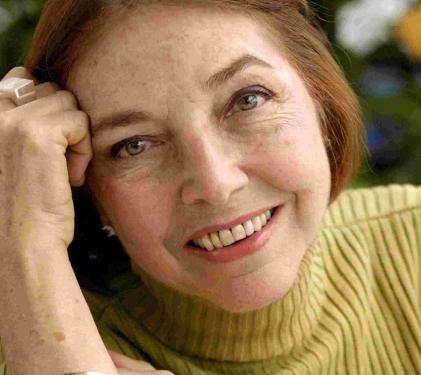
Marina Colasanti nasceu em 1937 na cidade de Asmara, capital da Eritreia. Residiu posteriormente em Trípoli, na Líbia, mudou-se para Itália e, em 1948, transferiu-se com a família para o Brasil, onde vive até hoje na cidade do Rio de Janeiro. É casada com o também escritor Affonso Romano de Sant'Anna e tem duas filhas, Fabiana e Alessandra Colasanti. De formação artista plástica, ingressou no Jornal do Brasil, dando início à sua carreira de jornalista. Desenvolveu atividades em televisão, editando e apresentando programas culturais. Foi publicitária. Traduziu importantes autores da literatura universal. Seu primeiro livro data de 1968. Hoje são mais de cinquenta títulos publicados no Brasil e no exterior, entre os quais livros de poesia, contos, crônicas, livros para crianças e jovens e ensaios sobre os temas literatura, o feminino, a arte, os problemas sociais e o amor. Por meio da literatura, teve a oportunidade de retomar sua atividade de artista plástica, tornando-se sua própria ilustradora. Sua obra tem sido tem de numerosas teses universitárias. É uma das mais premiadas escritoras brasileiras, detentora de vários prêmios Jabutis, do Grande Prêmio da Crítica da APCA, do Melhor Livro do Ana da Câmara Brasileira do Livro, do prêmio da Biblioteca Nacional para poesia, de dois prêmios latino-americanos. Foi o terceiro prêmio no Portugal Telecom de Literatura 2011. Tornou-se hors-concours da Fundação Nacional do Livro Infantil e Juvenil (FNLIJ), após ter sido várias vezes premiada. Participa ativamente de congressos, simpósios, cursos e feiras literárias no Brasil e em outros países.

Sérgio Marcus Rangel Porto (January 11, 1923 in Rio de Janeiro – September 30, 1968) was a Brazilian columnist, writer, broadcaster and composer. He was better known by his pen name Stanislaw Ponte Preta.[1] Sergio began his journalistic career in the late 1940s, working in publications such as Sombra and Manchete magazines and newspapers Ultima Hora, Tribuna da Imprensa and Diário Carioca. In the same period Tomás Santa Rosa also acted in several newspapers and newsletters as an illustrator. It was then that the character Stanislaw Ponte Preta and his satirical and critical chronicles was born, a creation of Sergio along with Santa Rosa - the character's first illustrator - inspired by the character Serafim Ponte Grande by Oswald de Andrade. Porto has also contributed to music publications and wrote musical shows for nightclubs, as well as composing the song "Samba do Crioulo Doido" for revue theater. He was also the creator and producer of the beauty pageant's As Certinhas do Lalau, which featured vedettes such as Anilza Leoni, Diana Morel, Rose Rondelli, Maria Pompeo,and Irma Alvarez, and of the FEBEAPÁ - Festival de Besteira que Assola o País (Festival of Nonsense which Sweeps the Country),a news satire column where he made corrosive jokes against the military dictatorship, and the social moralism of his time.[2][3] Porto died in 1968, before the dictatorship's Institutional Act n°5, that established censorship in the Brazilian press.

Marques Rebelo (nome literário de Edi Dias da Cruz), jornalista, contista, cronista, novelista e romancista, nasceu no Rio de Janeiro, RJ, em 6 de janeiro de 1907, e faleceu na mesma cidade em 26 de agosto de 1973. Era filho do químico Manuel Dias da Cruz Neto e de D. Rosa Reis Dias da Cruz. Sua infância dividiu-se entre Vila Isabel, onde nasceu, e a cidade mineira de Barbacena, para onde sua família se mudou quando ele tinha quatro anos. O que nunca lhe faltou, no Rio ou em Minas, foi um terreno baldio para jogar futebol e livros para ler. Além dos livros de ficção da biblioteca de seu pai, aos onze anos já tinha lido autores que os outros só leem quando adultos: Buffon, Flaubert, Balzac e os clássicos portugueses. Aos 15 anos o conhecimento de Machado de Assis e Manuel Antônio de Almeida iria despertar nele a “coceira de escrever” de que nunca mais se libertaria. Prosseguiu seus estudos e, no início dos anos de 1920, ingressou na Faculdade de Medicina, que logo abandonou para se dedicar ao comércio. Dedicou-se ao jornalismo profissional no mesmo período. Publicou poemas nas revistas modernistas Verde, Antropofagia, Leite Crioulo e outras. Escreveu seus primeiros contos por volta de 1927, quando fazia o Serviço Militar. Oscarina, publicado em 1931, é, em grande parte, fruto de sua vivência na caserna, que se transformou em literatura graças a uma queda sofrida numa competição esportiva que o reteve meses numa cama de hospital, onde ele aproveitava o tempo para escrever. Juntamente com a decisão de abandonar a poesia e se tornar ficcionista, o escritor tomou a de rebatizar-se. Questionado porque adotou o pseudônimo de Marques Rebelo, Edi Dias da Cruz explicou: “Nome de família muitas vezes atrapalha. Devido à campanha que fizeram contra os modernistas na Semana de Arte Moderna, justamente na época e por influência da mesma senti que tinha vocação para a literatura e resolvi adotar esse pseudônimo, evitando assim sofrimentos para a família.” Dois anos depois de Oscarina, veio a público Três caminhos, volume composto pelas novelas “Namorada”, “Vejo a lua no céu” e “Circo de cavalinhos”, e o romance Marafa, em 1935, laureado com o Grande Prêmio de Romance Machado de Assis, da Cia. Editora Nacional. O grande êxito viria em 1939 com A estrela sobe, romance de uma jovem suburbana que “vence” no rádio, a grande fábrica de ilusões da década de 1930. Marques Rebelo integrou a geração que fez o Romance de 30, inserido na linha da literatura de acusação e de denúncia da miséria brasileira. Foi o romancista do Rio de Janeiro, sobretudo de sua gente simples e humilde. Para ele, o Rio era a Zona Norte, de onde vinha o Carnaval e onde ia buscar a maioria dos seus personagens da baixa classe média. Escreveu sobre futebol, viagens e sobre Manuel Antônio de Almeida, o primeiro romancista brasileiro a retratar a vida urbana do Rio de Janeiro. Depois de Manuel Antônio de Almeida, Machado de Assis e Lima Barreto, Marques Rebelo foi o mais apaixonado pintor da vida carioca. Mas o Rio por ele descrito já desapareceu, pois ele retratou a cidade nos últimos anos pré-industriais, quando na Tijuca ainda se faziam serenatas, a Lapa estava no auge e casais de namorados passeavam de bonde. Depois de anos de paciente trabalho, publicou, em 1959, O Trapicheiro, seguido de mais dois volumes: A mudança (1962) e A Guerra está entre nós (1968), que formam o grande e inconcluso romance cíclico O espelho partido, painel fragmentário da vida brasileira, especialmente carioca, na primeira metade do século.

Lygia Fagundes Telles (born April 19, 1923) is a Brazilian novelist and short-story writer. She was born in São Paulo and is one of Brazil's most important living writers. Her first book of short stories, Praia Viva (Living Beach), was published in 1944. In 1949 got the Afonso Arinos award for her short stories book O Cacto Vermelho (Red Cactus). Among her most successful books are Ciranda de Pedra (The Marble Dance) (1954), Verão no Aquário (1963), Antes do Baile Verde (1970), Seminário dos Ratos (1977) and As Horas Nuas, (1989). The book Antes do Baile Verde won the Best Foreign Women Writers Grand Prix in Cannes (France) in 1969. Her most famous novel is As Meninas (The Girl in the Photograph), which tells the story of three young women in the early 1970s, a hard time in the political history of Brazil due to the repression by the military dictatorship. In 2005 she won the Camões Prize, the greatest literary award in the Portuguese language.[1] She is one of the three female members of the Brazilian Academy of Letters. From Wikipedia



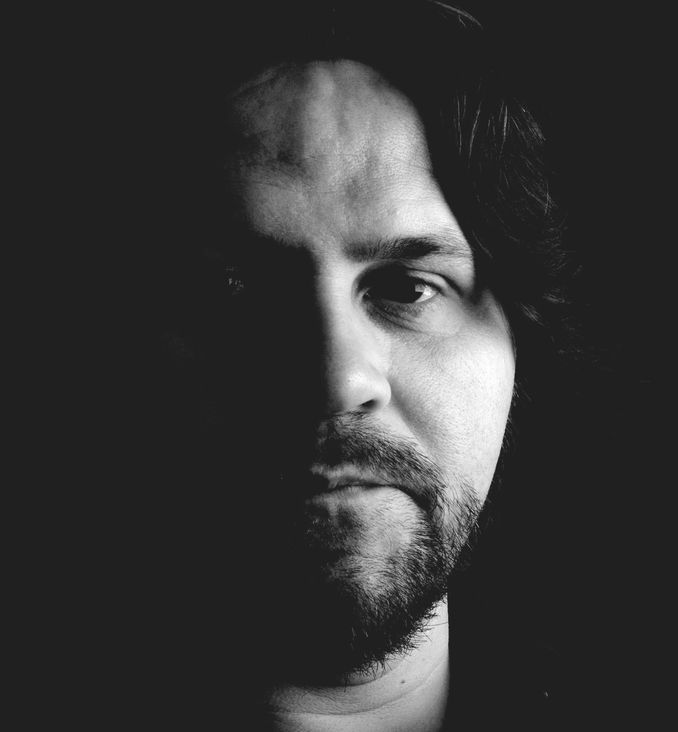

Clarice Lispector was a Brazilian writer. Acclaimed internationally for her innovative novels and short stories, she was also a journalist. Born to a Jewish family in Podolia in Western Ukraine, she was brought to Brazil as an infant, amidst the disasters engulfing her native land following the First World War. She grew up in northeastern Brazil, where her mother died when she was nine. The family moved to Rio de Janeiro when she was in her teens. While in law school in Rio she began publishing her first journalistic work and short stories, catapulting to fame at age 23 with the publication of her first novel, 'Near to the Wild Heart' (Perto do Coração Selvagem), written as an interior monologue in a style and language that was considered revolutionary in Brazil. She left Brazil in 1944, following her marriage to a Brazilian diplomat, and spent the next decade and a half in Europe and the United States. Upon return to Rio de Janeiro in 1959, she began producing her most famous works, including the stories of Family Ties (Laços de Família), the great mystic novel The Passion According to G.H. (A Paixão Segundo G.H.), and the novel many consider to be her masterpiece, Água Viva. Injured in an accident in 1966, she spent the last decade of her life in frequent pain, steadily writing and publishing novels and stories until her premature death in 1977. She has been the subject of numerous books and references to her, and her works are common in Brazilian literature and music. Several of her works have been turned into films, one being 'Hour of the Star' and she was the subject of a recent biography, Why This World, by Benjamin Moser.
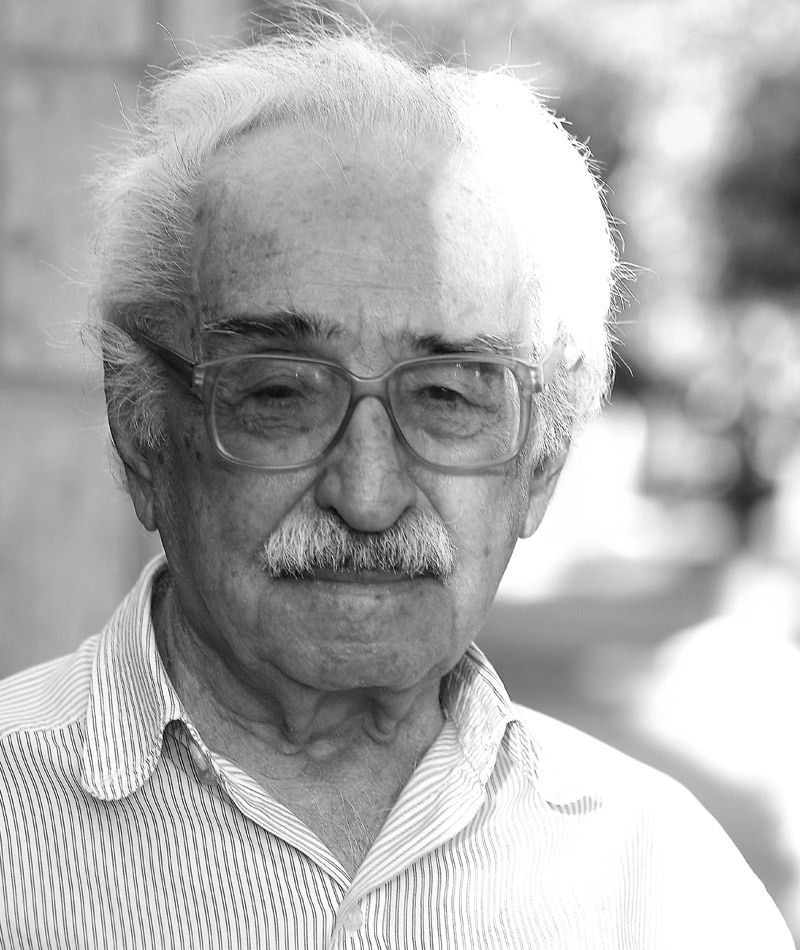
Manoel Wenceslau Leite de Barros is a Brazilian poet. He has won many awards for his work, including twice the Prêmio Jabuti, the most important literary award in Brazil. Today he is renowned by his critics as one of the great names of contemporary Brazilian poetry, and by many authors he has been considered the greatest living poet from Brazil, like the poet Carlos Drummond de Andrade recognized Manoel de Barros as the biggest poet of Brazil.

João Antônio Ferreira Filho was a Brazilian journalist and short story writer, who became known for portraying the lives of marginalized people inhabiting the outskirts of large cities, such as bandits, workers, vagrants and malandros. Born into a family of small shopkeepers in a suburb of São Paulo, João Antônio worked in low paid jobs before releasing his first collection of short stories, Malagueta, Perus e Bacanaço, in 1963, for which he won several awards: two Jabuti Prizes (best new author and best book of short stories), the Prêmio Fabio Prado and the Prêmio Municipal da Cidade de São Paulo. The double Jabuti award was an unprecedented feat for a rookie writer. Malagueta was originally written in 1960 but the manuscript was destroyed in a fire. Antonio then spent the following two years rewriting it. This literary success led him into a career in journalism, his first job being with the Jornal do Brasil. He was a member of the founding team of Realidade magazine (1966), which published the first short story of Brazilian journalism, Um Dia No Cais (1968). He subsequently worked for Manchete magazine, the newspaper O Pasquim and various alternative press outlets, opposing the military regime in Brazil. During this period, João Antonio alternated residence between Rio de Janeiro and São Paulo. In 1967, he married Marilia Mendonça Andrade; his only son, Daniel Pedro, was born in the same year. In the late 1960s he decided to radically change his life. He quit his job, sold his car, left his wife and began to devote himself entirely to literature. Antônio wrote fifteen books in total, but he always refused to participate in ceremonies and to join groups and literary academies, only accepting invitations to speak at schools and universities. He traveled throughout Brazil in 1978 and Europe in 1985. In 1987 he was awarded a scholarship and settled in Germany, where he remained until 1989. During this period, he also visited the Netherlands and Poland, holding numerous conferences. Antônio died alone in 1996, in Rio de Janeiro, his body only being discovered fifteen days after his death.


Afonso Henriques de Lima Barreto nasceu em 1881 na cidade do Rio de Janeiro. Enfrentou o preconceito por ser mestiço durante a vida. Ficou órfão aos sete anos de idade de mãe e, algum tempo depois, seu pai foi trabalhar como almoxarife em um asilo de loucos chamado Colônia de Alienados da Ilha do Governador. Concluiu o curso secundário na Escola Politécnica, contudo, teve que abandonar a faculdade de Engenharia, pois seu pai havia sido internado, vítima de loucura, e o autor foi obrigado a arcar com as despesas de casa. Como leu bastante após a conclusão do segundo grau, sua produção textual era de excelente qualidade, foi então que iniciou sua atividade como jornalista, sendo colaborador da imprensa. Contribuiu para as principais revistas de sua época: Brás Cubas, Fon-Fon, Careta, etc. No entanto, o que o sustentava era o emprego como escrevente na Secretaria de Guerra, onde aposentaria em 1918. Não foi reconhecido na literatura de sua época, apenas após sua morte. Viveu uma vida boêmia, solitária e entregue à bebida. Quando tornou-se alcoólatra, foi internado duas vezes na Colônia de Alienados na Praia Vermelha, em razão das alucinações que sofria durante seus estados de embriaguez. Lima Barreto fez de suas experiências pessoais canais de temáticas para seus livros. Em seus livros denunciou a desigualdade social, como em Clara dos Anjos; o racismo sofrido pelos negros e mestiços e também as decisões políticas quanto à Primeira República. Além disso, revelou seus sentimentos quanto ao que sofreu durante suas internações no Hospício Nacional em seu livro O cemitério dos vivos. Sua principal obra foi Triste fim de Policarpo Quaresma, no qual relata a vida de um funcionário público, nacionalista fanático, representado pela figura de Policarpo Quaresma. Dentre os desejos absurdos desta personagem está o de resolver os problemas do país e o de oficializar o tupi como língua brasileira.

Nascido em Porto Alegre e filho do também escritor Érico Verissimo, Luis Fernando Verissimo é famoso por suas crônicas cheias de ironia humorística. Além de escritor, ele também é jornalista, publicitário, cartunista e tradutor. Entre suas paixões, estão a família, o time de paixão, Internacional de Porto Alegre, e o jazz sendo praticamente inseparável de seu saxofone. Seus amigos o definem como "uma pessoa que fala escrevendo". Em público, ele é tímido e de forma alguma aparenta ser o autor de seus irreverentes textos. É considerado o escritor que mais vende livros no Brasil.
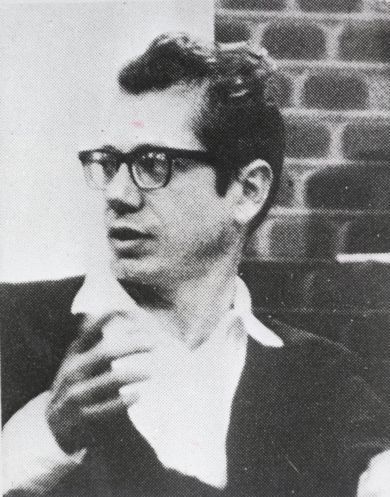
Nasceu na cidade de Curitiba, em 14 de junho de 1925. Formou-se na Faculdade de Direito do Paraná e liderou o grupo literário que publicou, entre 1946 e 1948, a revista Joaquim. A publicação, que circulou até dezembro de 1948, continha o material de seus primeiros livros de ficção, incluindo Sonata ao luar (1945) e Sete anos de pastor (1948). Em 1954, publicou o Guia Histórico de Curitiba, Crônicas da Província de Curitiba, O dia de Marcos e Os domingos ou Ao armazém do Lucas, edições populares à maneira dos folhetos de feira. A partir dos habitantes da cidade, criou personagens e situações de significado universal, em que as tramas psicológicas e os costumes são recriados por meio de uma linguagem concisa e popular, que valoriza os incidentes do cotidiano sofrido e angustiante. Publicou também Novelas nada exemplares (1959), Morte na praça (1964), Cemitério de elefantes (1964) e O vampiro de Curitiba (1965). Isolado dos meios intelectuais e concorrendo sob pseudônimo, Trevisan conquistou o primeiro lugar do I Concurso Nacional de Contos do Estado do Paraná, em 1968. Escreveu depois A guerra conjugal (1969) – mais tarde transformada em filme –, Crimes da paixão (1978) e Lincha tarado (1980). Em 1994, publicou Ah, é?, obra-prima do estilo minimalista. Seu único romance publicado é A polaquinha. Trevisan é reconhecido como um dos maiores contistas vivos da literatura brasileira pela maioria dos críticos do país. Apesar disso, é avesso a entrevistas e exposições em órgãos de comunicação social. Por esse motivo recebeu a alcunha de “Vampiro de Curitiba”, nome de um de seus livros. Além da Literatura, Trevisan exerce a advocacia e é proprietário de uma fábrica de vidros. Fonte


Miguel Torga, pseudonym of Adolfo Correia da Rocha was one of the greatest Portuguese writers of the 20th century. He wrote poetry, short stories, theater and a 16 volume diary. He was born in a village in Trás-os-Montes, northern Portugal, to small-time farmer parents. After a short spell as student in a catholic seminary in Lamego, also in Trás-os-Montes, in 1920 his father sent him to Brazil where he worked on the coffee plantation of an uncle who, finding him to be a clever student, paid his high school there and afterwards his medicine graduation (1933) at the University of Coimbra, in Portugal (to where he returns in 1925). After graduation he worked in his village and in other places in the country, publishing his books from his own pocket for a number of years. In 1941, he established himself as an otolaryngologist physician in Coimbra. His agnostic beliefs seems to reflect in his work, that deals mainly with the nobility of the human condition in a beautiful but ruthless world where God is absent or is nothing but a passive and silent, indiferent creator. After the value of his work was being recognized, he went on to receive several awards, as the Prémio Camões in 1989 and the Montaigne award in 1981. He was several times nominated for the Nobel Prize of Literature, being the last one in 1994, but he never won. Source: http://en.wikipedia.org/wiki/Miguel\_T...
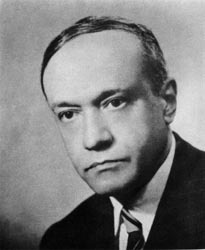
Jorge Mateus de Lima, was a Brazilian politician, poet, and writer. His most famous works are the novels "A Mulher Obscura" and "Calunga"; and "A Túnica Inconsútil" and "A Invenção de Orfeu" (poetry). He was in a list and would win the Nobel Prize in 1958, but he died in 1953. He was the son of a wealthy merchant and moved to Maceió in 1902, with his mother and siblings. In 1909 he moved to Salvador, where he began studying medicine. Completed the course in Rio de Janeiro in 1914, but was designed as a poet to his name. That same year he published the first book, Alexandrine XIV. He returned to Maceió in 1915 where he devoted himself to medicine, and literature and politics. When he moved to Alagoas to Rio in 1930 set up an office in Cinelandia, also turned to studio painting and meeting point for intellectuals. There was meeting people like Murilo Mendes, Graciliano Ramos and Jose Lins do Rego. In this period he published about ten books, five of poetry. Also served as state representative from 1918 to 1922. With the Revolution of 1930 was brought to settle down permanently in Rio de Janeiro. In 1939 he devoted himself also to the arts, participating in some exhibitions. In 1952, he published his most important book, the epic Invention of Orpheus. In 1953, months before he died, he recorded poems for the Archive of the Spoken Word Library of Congress in Washington, the United States of America. Between 1937 and 1945 had its application to the Brazilian Academy of Letters refused six times. For Ivan Junqueira, the Academy has committed an unforgivable injustice to the author, whose literary work was exceptionally well received by critics and public. The scholar does not believe that the poet was carried forward to the edge of the literature of his time and he says, when referring to the greatest poem of the author - Invention of Orpheus, "... even today, more junk spent 50 years of its publication, there is no Brazilian poet that he did not remember. "


É o autor da letra do Hino da Proclamação da República. Na imprensa, escreveu também sob os pseudônimos Armando Quevedo, Atásius Noll, J. dos Santos, Max, Rifiúfio Singapura. Membro da Academia das Ciências de Lisboa. A 7 de Junho de 1922 foi feito Comendador da Ordem Militar de Cristo de Portugal e a 19 de Abril de 1940 foi feito Comendador da Ordem Militar de Sant'Iago da Espada de Portugal. Durante boa parte de sua vida foi um ateu convicto, porém converteu ao catolicismo. Em 1924, Medeiros e Albuquerque publicou um interessante livro intitulado "Tests". Com o subtítulo de "Introdução ao estudo dos meios científicos de julgar a inteligência e a aplicação dos alunos", a pequena obra, pretendia trazer para o cenário brasileiro, principalmente para o ensino de psicologia nas escolas normais, o movimento que crescia nos Estados Unidos com relação ao uso de testes psicológicos. O livro de Medeiros e Albuquerque, muito bem referendado bibliograficamente dentro de sua época, introduz o leitor nos testes de inteligência (individuais e coletivos) e discute a utilização do emprego de testes como forma de avaliação aprendizagem. O próprio autor sugere que seu livro seja a primeira publicação brasileira sobre assunto.

(Adeline) Virginia Woolf was an English novelist and essayist regarded as one of the foremost modernist literary figures of the twentieth century. During the interwar period, Woolf was a significant figure in London literary society and a member of the Bloomsbury Group. Her most famous works include the novels Mrs. Dalloway (1925), To the Lighthouse (1927), and Orlando (1928), and the book-length essay A Room of One's Own (1929) with its famous dictum, "a woman must have money and a room of her own if she is to write fiction."
Nacido en Argentina y nacionalizado español en 1980, país en el que reside desde 1976. Traductor, ensayista, crítico liteario y novelista, colaboró con Poseidón, Jacobo Muchik Editor, Clarín, Granica Editor, Pomaire, Plaza y Janés, La Vanguardia, Seix Barral, Martínez Roca y Libertad Digital entre muchas otras editoriales, medios y publicaciones. Faja de Honor de la Sociedad Argentina de Escritores y ganador del Premio Conex.

Oscar Fingal O'Flahertie Wills Wilde was an Irish playwright, poet, and author of numerous short stories, and one novel. Known for his biting wit, and a plentitude of aphorisms, he became one of the most successful playwrights of the late Victorian era in London, and one of the greatest celebrities of his day. Several of his plays continue to be widely performed, especially The Importance of Being Earnest. As the result of a widely covered series of trials, Wilde suffered a dramatic downfall and was imprisoned for two years hard labour after being convicted of "gross indecency" with other men. After Wilde was released from prison he set sail for Dieppe by the night ferry. He never returned to Ireland or Britain, and died in poverty.

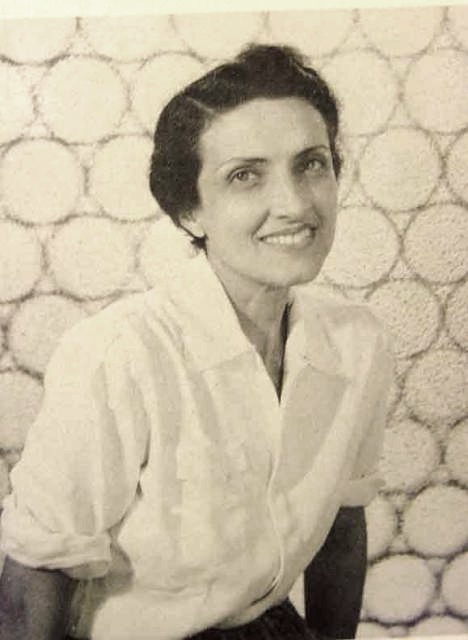
Cecília Benevides de Carvalho Meireles was a Brazilian writer and educator, known principally as a poet. She is a canonical name of Brazilian Modernism, one of the great female poets in the Portuguese language, and is widely considered the best poetess from Brazil, though she rightly combatted the word "poetess" because of gender discrimination. She traveled in the Americas in the 1940s, visiting the United States, Mexico, Argentina, Uruguay and Chile. In the summer of 1940 she gave lectures at the University of Texas, Austin. She wrote two poems about her time in the capital of Texas, and a long (800 lines) very socially-aware poem "USA 1940", which was published posthumously. As a journalist her columns (crônicas, or chronicles) focused most often on education, but also on her trips abroad in the western hemisphere, Portugal, other parts of Europe, Israel, and India (where she received an honorary doctorate). As a poet, her style was mostly neo-symbolist and her themes included ephemeral time and the contemplative life. Even though she was not concerned with local color, native vernacular, or experiments in (popular) syntax, she is considered one of the most important poets of the second phase of the Brazilian Modernism, known for nationalistic vanguardism.

Sir Arthur Ignatius Conan Doyle was born the third of ten siblings on 22 May 1859 in Edinburgh, Scotland. His father, Charles Altamont Doyle, a talented illustrator, was born in England of Irish descent, and his mother, born Mary Foley, was Irish. They were married in 1855. Although he is now referred to as "Conan Doyle", the origin of this compound surname (if that is how he meant it to be understood) is uncertain. His baptism record in the registry of St Mary's Cathedral in Edinburgh gives 'Arthur Ignatius Conan' as his Christian name, and simply 'Doyle' as his surname. It also names Michael Conan as his godfather. At the age of nine Conan Doyle was sent to the Roman Catholic Jesuit preparatory school, Hodder Place, Stonyhurst. He then went on to Stonyhurst College, leaving in 1875. From 1876 to 1881 he studied medicine at the University of Edinburgh. This required that he provide periodic medical assistance in the towns of Aston (now a district of Birmingham) and Sheffield. While studying, Conan Doyle began writing short stories. His first published story appeared in "Chambers' Edinburgh Journal" before he was 20. Following his graduation, he was employed as a ship's doctor on the SS Mayumba during a voyage to the West African coast. He completed his doctorate on the subject of tabes dorsalis in 1885. In 1885 Conan Doyle married Louisa (or Louise) Hawkins, known as "Touie". She suffered from tuberculosis and died on 4 July 1906. The following year he married Jean Elizabeth Leckie, whom he had first met and fallen in love with in 1897. Due to his sense of loyalty he had maintained a purely platonic relationship with Jean while his first wife was alive. Jean died in London on 27 June 1940. Conan Doyle fathered five children. Two with his first wife—Mary Louise (28 January 1889 – 12 June 1976), and Arthur Alleyne Kingsley, known as Kingsley (15 November 1892 – 28 October 1918). With his second wife he had three children—Denis Percy Stewart (17 March 1909 – 9 March 1955), second husband in 1936 of Georgian Princess Nina Mdivani (circa 1910 – 19 February 1987; former sister-in-law of Barbara Hutton); Adrian Malcolm (19 November 1910–3 June 1970) and Jean Lena Annette (21 December 1912–18 November 1997). Conan Doyle was found clutching his chest in the hall of Windlesham, his house in Crowborough, East Sussex, on 7 July 1930. He had died of a heart attack at age 71. His last words were directed toward his wife: "You are wonderful." The epitaph on his gravestone in the churchyard at Minstead in the New Forest, Hampshire, reads: STEEL TRUE BLADE STRAIGHT ARTHUR CONAN DOYLE KNIGHT PATRIOT, PHYSICIAN & MAN OF LETTERS Conan Doyle's house, Undershaw, located in Hindhead, south of London, where he had lived for a decade, had been a hotel and restaurant between 1924 and 2004. It now stands empty while conservationists and Conan Doyle fans fight to preserve it. A statue honours Conan Doyle at Crowborough Cross in Crowborough, where Conan Doyle lived for 23 years. There is also a statue of Sherlock Holmes in Picardy Place, Edinburgh, close to the house where Conan Doyle was born. Series: * Sherlock Holmes

Walcyr Carrasco is a Brazilian author, film writer and television writer. He debuted in the 1980s as a playwright. Between 1990 and 1991, wrote three miniseries for Manchete. He later authored children's books, some of which were used as textbooks in Brazilian schools.

Herbert George Wells was born to a working class family in Kent, England. Young Wells received a spotty education, interrupted by several illnesses and family difficulties, and became a draper's apprentice as a teenager. The headmaster of Midhurst Grammar School, where he had spent a year, arranged for him to return as an "usher," or student teacher. Wells earned a government scholarship in 1884, to study biology under Thomas Henry Huxley at the Normal School of Science. Wells earned his bachelor of science and doctor of science degrees at the University of London. After marrying his cousin, Isabel, Wells began to supplement his teaching salary with short stories and freelance articles, then books, including The Time Machine (1895), The Island of Dr. Moreau (1896), The Invisible Man (1897), and The War of the Worlds (1898). Wells created a mild scandal when he divorced his cousin to marry one of his best students, Amy Catherine Robbins. Although his second marriage was lasting and produced two sons, Wells was an unabashed advocate of free (as opposed to "indiscriminate") love. He continued to openly have extra-marital liaisons, most famously with Margaret Sanger, and a ten-year relationship with the author Rebecca West, who had one of his two out-of-wedlock children. A one-time member of the Fabian Society, Wells sought active change. His 100 books included many novels, as well as nonfiction, such as A Modern Utopia (1905), The Outline of History (1920), A Short History of the World (1922), The Shape of Things to Come (1933), and The Work, Wealth and Happiness of Mankind (1932). One of his booklets was Crux Ansata, An Indictment of the Roman Catholic Church. Although Wells toyed briefly with the idea of a "divine will" in his book, God the Invisible King (1917), it was a temporary aberration. Wells used his international fame to promote his favorite causes, including the prevention of war, and was received by government officials around the world. He is best-remembered as an early writer of science fiction and futurism. He was also an outspoken socialist. Wells and Jules Verne are each sometimes referred to as "The Fathers of Science Fiction". D. 1946. More: http://philosopedia.org/index.php/H.\_... http://www.online-literature.com/well... http://www.hgwellsusa.50megs.com/ http://www.britannica.com/EBchecked/t... http://en.wikipedia.org/wiki/H.\_G.\_Wells

João Anzanello Carrascoza (Cravinhos, interior de São Paulo, 1962) é um escritor e professor universitário brasileiro. Estreou-se com o livro Hotel Solidão (1994). Publicou vários livros de contos, como Duas tardes (2002), Espinhos e alfinetes (2010), Amores mínimos (2011), O volume do silêncio (2006, prêmio Jabuti) e Aquela água toda (2012, prêmio APCA). Em seu primeiro romance, Aos 7 e aos 40 (Cosac Naify, 2013), Carrascoza escreveu que “o presente é feito de todas as ausências”. Em Caderno de um ausente (Cosac Naify, 2014), essa ideia se materializa de forma contundente, alçada por um lirismo poucas vezes visto na literatura brasileira.


Paulo Leminski Filho (Curitiba, August 24, 1944 – Curitiba, June 7, 1989) was a Brazilian poet and writer. He took pride in being of mixed Polish and African descent. His first small-press collection came out in the late 1970s. Although he never finished college, by the 1980s he knew Japanese, French, and English well enough to do translations. His most noted renderings are of Alfred Jarry, James Joyce, John Fante, John Lennon, Samuel Beckett, and Yukio Mishima. He also helped to produce a number of albums and was said to have taught judo. Leminski was a prolific poet, wrote experimental prose / essays, occasionally wrote songs, and was a cultural agitator. He was the leading voice of his generation, having followed different paths of Brazilian lyric from the early 1960s through the late 1980s. His style of poetry has been compared to that of American poet e. e. cummings (song writer / singer Luciana Souza on the Tom Schanbel show on KCRW 89.9 fm 06/24/2009). He contributed to the journal Invenção, while still a teen and would maintain a strong sense of visuality and layout in his poetic output. Some of Leminski's poetry of the late 1970s/early 1980s has been linked to the controversial labe of poesia marginal. But his dedication to resolution in language set him apart. His collections Caprichos & Relaxos (1983) and Distraídos venceremos (1987) are landmarks. In the latter, his rigor and intertextual urges are clear. A neo-baroque narrative, Catatau (1975), has become a cult book. His home town Curitiba has sponsored a yearly celebration of his legacy and cultural vibrancy in Brazil. The event's name Perhappiness is taken from a one-liner by the poet.

Ray Douglas Bradbury, American novelist, short story writer, essayist, playwright, screenwriter and poet, was born August 22, 1920 in Waukegan, Illinois. He graduated from a Los Angeles high school in 1938. Although his formal education ended there, he became a "student of life," selling newspapers on L.A. street corners from 1938 to 1942, spending his nights in the public library and his days at the typewriter. He became a full-time writer in 1943, and contributed numerous short stories to periodicals before publishing a collection of them, Dark Carnival, in 1947. His reputation as a writer of courage and vision was established with the publication of The Martian Chronicles in 1950, which describes the first attempts of Earth people to conquer and colonize Mars, and the unintended consequences. Next came The Illustrated Man and then, in 1953, Fahrenheit 451, which many consider to be Bradbury's masterpiece, a scathing indictment of censorship set in a future world where the written word is forbidden. In an attempt to salvage their history and culture, a group of rebels memorize entire works of literature and philosophy as their books are burned by the totalitarian state. Other works include The October Country, Dandelion Wine, A Medicine for Melancholy, Something Wicked This Way Comes, I Sing the Body Electric!, Quicker Than the Eye, and Driving Blind. In all, Bradbury has published more than thirty books, close to 600 short stories, and numerous poems, essays, and plays. His short stories have appeared in more than 1,000 school curriculum "recommended reading" anthologies. Ray Bradbury's work has been included in four Best American Short Story collections. He has been awarded the O. Henry Memorial Award, the Benjamin Franklin Award, the World Fantasy Award for Lifetime Achievement, the Grand Master Award from the Science Fiction Writers of America, the PEN Center USA West Lifetime Achievement Award, among others. In November 2000, the National Book Foundation Medal for Distinguished Contribution to American Letters was conferred upon Mr. Bradbury at the 2000 National Book Awards Ceremony in New York City. Ray Bradbury has never confined his vision to the purely literary. He has been nominated for an Academy Award (for his animated film Icarus Montgolfier Wright), and has won an Emmy Award (for his teleplay of The Halloween Tree). He adapted sixty-five of his stories for television's Ray Bradbury Theater. He was the creative consultant on the United States Pavilion at the 1964 New York World's Fair. In 1982 he created the interior metaphors for the Spaceship Earth display at Epcot Center, Disney World, and later contributed to the conception of the Orbitron space ride at Euro-Disney, France. Married since 1947, Mr. Bradbury and his wife Maggie lived in Los Angeles with their numerous cats. Together, they raised four daughters and had eight grandchildren. Sadly, Maggie passed away in November of 2003. On the occasion of his 80th birthday in August 2000, Bradbury said, "The great fun in my life has been getting up every morning and rushing to the typewriter because some new idea has hit me. The feeling I have every day is very much the same as it was when I was twelve. In any event, here I am, eighty years old, feeling no different, full of a great sense of joy, and glad for the long life that has been allowed me. I have good plans for the next ten or twenty years, and I hope you'll come along."
